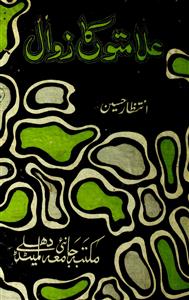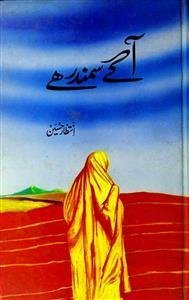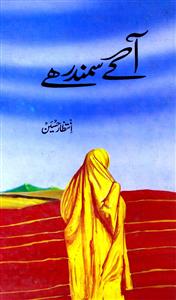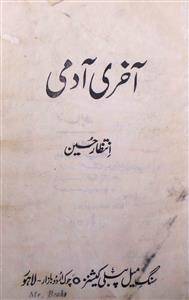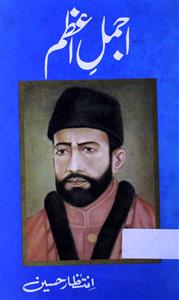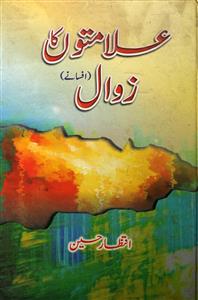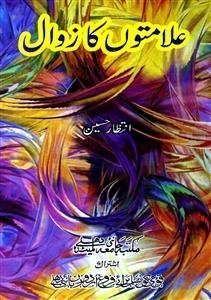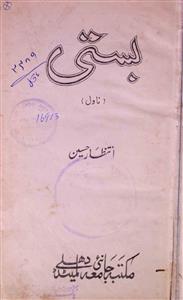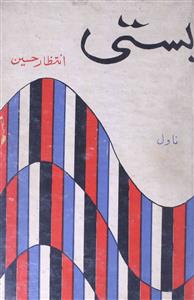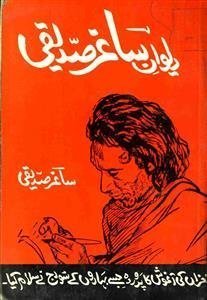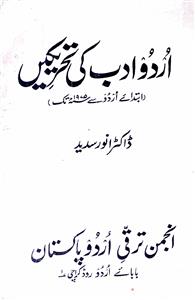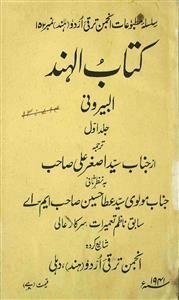 For any query/comment related to this ebook, please contact us at haidar.ali@rekhta.org
For any query/comment related to this ebook, please contact us at haidar.ali@rekhta.org
About The Book
انتظار حسین کا شمار ارد کے اہم افسانہ نگاروں میں ہوتا ہے ان کے ناول اور افسانے ادب کی بلندی پر فائز ہیں ۔ ان کی تحریروں کا کمال یہ ہے کہ وہ علامتی اور استعاراتی اسلوب کو نت نئے ڈھنگ سے بالکل اچھوتے انداز میں استعمال کرنے والے فن کار تھے ۔ان کا فن عوامی نہیں تھا بلکہ عام قاری کی فہم و بصارت سے کوسوں دور نظر آتا ہے ۔ ان کی تخلیق کا مطالعہ کر نے کے لیے وسیع مطالعہ ضروری ہے ۔ لیکن ان کی یہ کتاب تخلیق پر نہیں بلکہ تنقید پر ہے اور مستقل لکھے گئے مضامین نہیں ہیں بلکہ وہ خود لکھتے ہیں ’’ باقاعدہ تنقیدی مقالہ لکھنے کا تو میں اہل ہی نہیں۔ یہ تو بس چیزوں کے بارے میں ، تحریروں کے بارے میں ،ادب کے سوالات کے بارے میں ، تہذیب کے معاملات کے بارے میں ایک حقیر افسانہ نگار کے رد عمل ہیں۔‘‘ اس متعلق سمجھ سکتے ہیں کہ ایک تخلیق کار کی نظر کیا ہوتی ہے وہ علامتوں کو کس طرح تراشتا ہے اور کہانیوں میں جان ڈال دیتا ہے ۔اس کتاب میں بہت ہی قیمتی اور نادر خیالات سے روشناس ہوں گے ۔ کتاب کودو حصوں میں رکھا گیا ہے ۔ پہلے حصے میں پندرہ عناوین کے تحت ادب کے مختلف مسائل پر گفتگوہے جن میں سے ایک علامتوں کا زوال بھی ہے ۔ کتاب کے دوسرے حصے میں تیرہ شخصیات اور تخلیقا ت پر گفتگو ہے ۔ کتا ب کا ایک ایک جملہ نظر و نظریہ سے بھر پور ہے ۔ اعلیٰ ادبی ذوق رکھنے والوں کے لیے قیمتی اثاثہ سے کم نہیں ہے ۔
About The Author
Intizar Hussain was born on December 21, 1925 in Bulandshahr, Dibai. He did BA and MA in Urdu from Meerut College. After the formation of Pakistan, he settled in Lahore, where he became associated with the field of journalism.
Intizar Hussain’s first collection of short stories ‘Gali Kuuche’ was published in 1952. The Lahore Nama, a long-running column in the daily Mashriq, also became very popular. He also wrote columns for radio. In Urdu, he went on to attain a truly distinguished stature in fiction and novel writing.
Besides being a noted fictionist of the Urdu language, he is still considered an exemplar by frontline writers owing to his unique style, tone of narration, and crafting. He assimilated the finer elements of the classic Urdu Dastan, its characterization, and intonation into the contemporary settings. His writings have a nostalgic air about them, mainly because he often brings together mythological tropes in his writings. There is a profound sense of classicism and traditionalism in his works. The superficialness of new values in contrast with the atrophy of traditional ones is something that brings a melancholy expression out of him. He innovatively uses symbols and metaphors. In spite of the love for past and an attempt to steer clear of the future, there is an unheralded beauty and pain in his stories.
His noted works include: Aakhri Aadmi, Shahr-e-Afsos, Age Samandar Hai, Bastii, Chaand-Gahan, Gali Kooche, Kachhue, Khaali Pinjra, Khaame Se Duur, Din Aur Daastaan, Alamaton Ka Zawaal, Boond Boond, Shahr-zad Ke Naam, Zameen Aur Fallak, Charaghoon Ka Dhuwan, Dilli Tha Jis Ka Naam, Justujuu Kya Hai, Qatre Mein Darya, Janam Kahaniyan, Qissay Kahaniyan, Shakista Sutoon Par Dhoop, and Saeed Ki Pur Asraar Zindagi.
Intizar Hussain was the first Pakistani writer to be shortlisted for the Man Booker Prize. He was also awarded Sitara-e-Imtiaz by the Government of Pakistan and the Kamal-e-Fann Award, the highest literary award of Pakistan by the Academy of Literature of Pakistan.
This article is written by Aqeel Abbas Jafari who is a well-known writer.
 For any query/comment related to this ebook, please contact us at haidar.ali@rekhta.org
For any query/comment related to this ebook, please contact us at haidar.ali@rekhta.org
Write a Review
Jashn-e-Rekhta 10th Edition | 5-6-7 December Get Tickets Here
